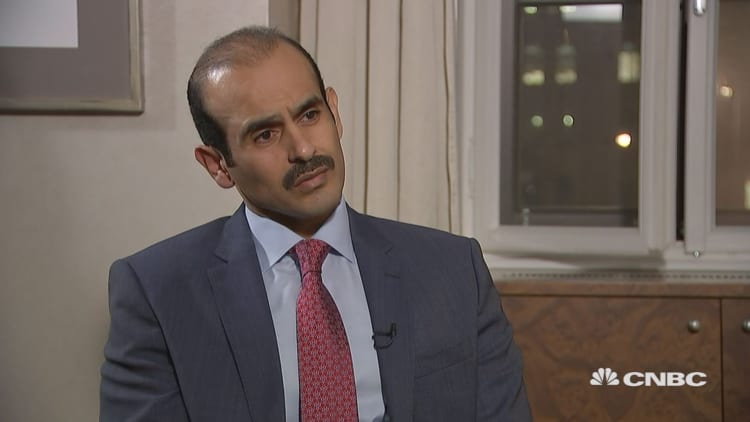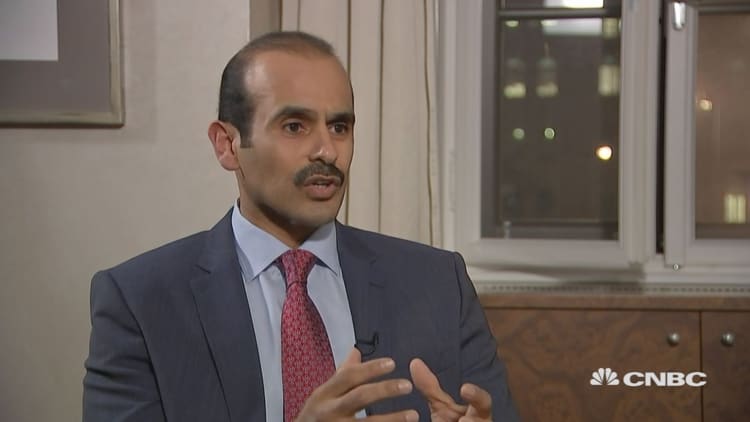
Leaving OPEC was a purely strategic decision and had nothing to do with politics, Qatari Energy Minister Saad al-Kaabi told CNBC on Wednesday.
The energy-rich Gulf state announced plans to pull-out of the syndicate on Monday, just days before a meeting between the influential cartel and its allies in Vienna, Austria. Qatar will withdraw from OPEC on January 1, ending a membership that has stood for more than half a century.
Neighboring countries have enforced an 18-month political and economic boycott of Qatar but al-Kaabi said the move was not political but in fact made strategic sense as the country transitioned towards liquefied natural gas (LNG) production.
"We didn't see ourselves fitting anymore (in OPEC)," he told CNBC's Hadley Gamble in Vienna.
"I suggested to our leadership that we should exit OPEC. I know people and media would love to politicize this and they have politicized it — even in my country when you look at some of the media — because they don't know the facts," he added.
On Qatar losing influence at OPEC, al-Kaabi said there was little to be lost: "We are a small player and I don't think that our voice counts."

While Qatar is one of OPEC's smallest oil producers, especially when compared to the likes of de facto leader Saudi Arabia, it is one of the world's largest producers of LNG.
Qatar has announced it is to grow its LNG production from 77 million tons per annum to 110 million tons. Al-Kaabi said the country is well on the way in tendering for new rigs and was going "full-steam ahead" on external investment in countries such as Brazil, Mexico and the United States.
He added that while the world needs an energy mix between oil, gas, renewable and nuclear, it was clear that gas would dominate the future.

Future of OPEC
Qatar's withdrawal from OPEC has raised questions over the future of the organization and how much influence it will hold.
Al-Kaabi told CNBC that it was clear it did not have the same sway over oil prices that it once did.
"I think OPEC is an organization that has reduced in strength in time due to the growth of producers such as the U.S and Russia," he said.
The energy minister said he did not believe in any replacement organization and that market forces would be a better way of balancing the energy market.
"I think if you let supply and demand work it will balance the market, and I think the cheapest projects will be able to function," he said.
Al-Kaabi said it was "disturbing" to see political rifts around the world affect the energy industry, but he hoped that there would be no additional tariffs or restrictions on the movement of oil and gas around the world, including that coming from Iran.
"I think the impact of having sanctions on Iran is not good for the energy business. I think the free flow of oil and liquids and gas from and to all countries is a much better outcome."


